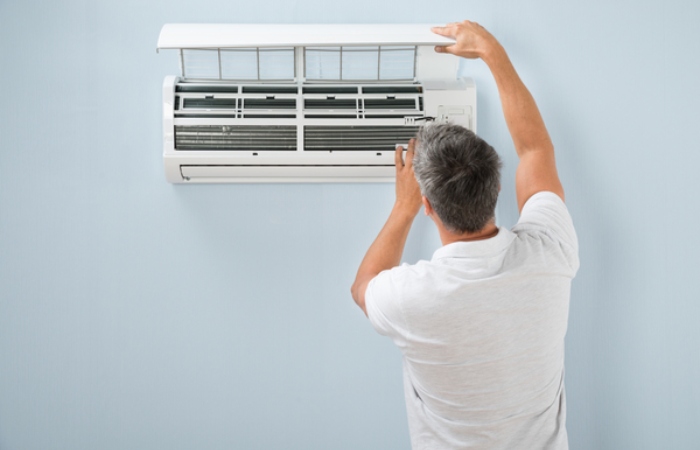Heating and cooling systems are indispensable to maintaining a comfortable indoor environment for HVAC Companies, but they can encounter problems that affect their performance. Diagnosing these issues requires a systematic approach to identifying root causes and identifying practical solutions.
HVAC companies play a critical role in this process, using their knowledge and diagnostic tools to address issues ranging from inconsistent temperatures to unusual noises and decreased energy efficiency.
We’ll look at how HVAC companies in Forney diagnose standard heating and cooling issues, focusing on their methods for assessing system performance, troubleshooting problems, and ensuring systems are restored to optimal functionality.
Ways to Assess Common HVAC Issues

Assessing System Performance and Efficiency
When solving heating and cooling issues, HVAC companies begin by assessing the overall performance and efficiency of the system. This includes thoroughly inspecting key components such as the thermostat, air filters, ductwork, and the heating or cooling unit. These initial assessments help identify areas that may be contributing to the problem.
For example, if a homeowner reports inconsistent temperatures, a company may check the thermostat settings to ensure they are correct and responsive. Faulty thermostats can cause uneven heating or cooling, leading to discomfort and inefficiency. Likewise, clogged air filters can restrict airflow, making it difficult for the system to uphold a consistent temperature.
HVAC companies analyze the system’s energy consumption in cases of unusually high energy bills to identify inefficiencies. This often includes checking for ductwork leaks or insulation issues that can cause power loss. By assessing the system, HVAC companies can identify patterns that indicate specific problems and develop specific solutions.
Diagnose Airflow and Ventilation Problems
Airflow problems are a common cause of heating and cooling problems, and diagnosing them requires thoroughly examining the system’s vents. HVAC companies inspect the condition of ducts, vents, and fan motors to detect blockages or problems affecting airflow.
For example, debris or dust buildup in ducts can obstruct airflow, reducing efficiency and causing uneven temperatures. Damaged or disconnected ducts can also cause air leaks, wasting energy and making it challenging to regulate room temperatures. HVAC companies use air flow meters, and pressure gauges to measure airflow levels and detect leaks or blockages.
Another potential problem is a faulty fan motor that cannot effectively distribute air throughout the room. HVAC companies inspect the engine and its components, such as belts and bearings, to ensure they work correctly. Diagnosing and resolving airflow problems helps restore system efficiency and ensure occupant comfort.
Identify electrical and mechanical problems.
The efficient process of heating and cooling systems depends on various electrical and mechanical components, which can lead to system failure in these areas. HVAC companies use diagnostic equipment to identify electrical problems such as defective wiring, blown fuses, or bad capacitors that can prevent the system from starting or operating correctly.
For example, a faulty compressor in an air conditioner can result in insufficient cooling or complete system failure. HVAC companies check the compressor and other mechanical components, such as fans and motors, to determine the cause of the problem. They also monitor refrigerant levels, which can lead to poor cooling performance and compressor overload.
Electrical diagnostics typically involve testing circuit boards and sensors to ensure they send accurate signals to the system. By troubleshooting electrical and mechanical problems, HVAC companies restore the system’s functionality and stop further damage to its components.
Troubleshooting a Heating System
When diagnosing heating problems, HVAC companies focus on components such as the furnace, heat pump, and ignition system. Common issues include insufficient heat output, strange noises, or frequent system cycling.
A dirty burner, faulty ignition system, or faulty heat exchanger can cause a lack of heat. HVAC companies inspect these components to ensure they are clean, undamaged, and working correctly. Strange noises such as knocking or rattling may indicate loose or damaged parts inside the furnace or heat pump that require immediate attention to prevent further damage.
Frequent cycling, where the system cycles on and off repeatedly, is often due to a faulty thermostat, dirty filters, or problems with the fan motor. Diagnosing and fixing these problems helps ensure your heating system runs efficiently and provides consistent heat during the colder months.
Ensure Cooling System Efficiency.
HVAC companies also pay special attention to cooling system problems, such as insufficient cooling or ice forming on the evaporator coils. Diagnosing these problems involves checking the air conditioner’s refrigerant levels, coils, and condensate drains.
Low refrigerant heights can cause the system to have difficulty cooling, resulting in increased energy consumption and discomfort. HVAC companies check for refrigerant leaks and recharge the system if necessary. Ice buildup on evaporator coils is usually caused by restricted airflow or dirty coils. This problem can be fixed by cleaning the coils and ensuring good airflow through the system.
Clogged condensate sanitizers can lead to water damage and poor system performance. HVAC companies clean these drains and inspect the system to ensure it operates properly. HVAC companies help maintain a comfortable indoor environment during the warmer months by diagnosing and solving cooling system problems.
HVAC companies play a critical role in diagnosing and solving standard heating and cooling problems, ensuring efficient and reliable operation of the systems. By thoroughly assessing system performance, airflow, electrical components, and mechanical parts, they identify the root causes of problems and implement effective solutions.
Their thorough approach restores occupant comfort and extends the life of heating and cooling systems. By addressing problems proactively and comprehensively, HVAC companies help homeowners and businesses maintain comfortable, energy-efficient environments year-round.

